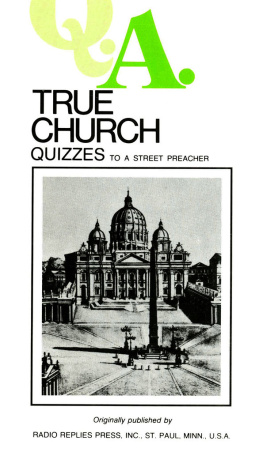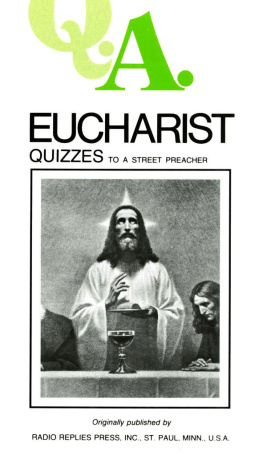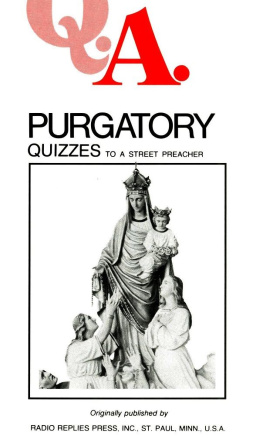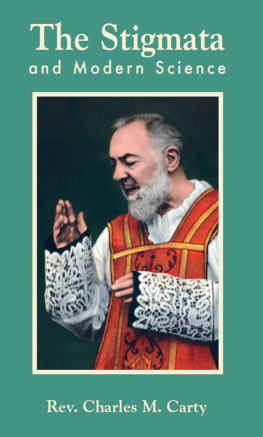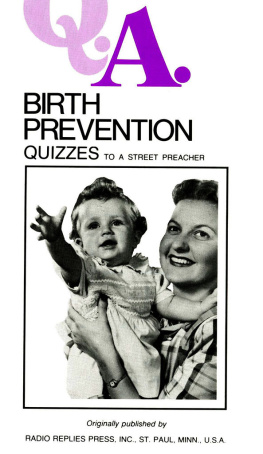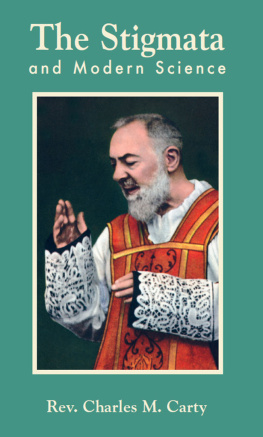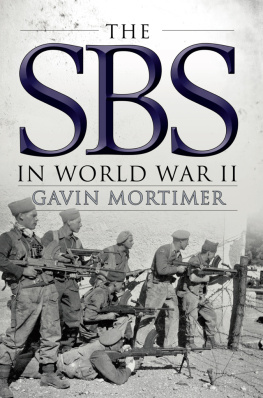Charles Mortimer Carty - Who is Teresa Neumann?
Here you can read online Charles Mortimer Carty - Who is Teresa Neumann? full text of the book (entire story) in english for free. Download pdf and epub, get meaning, cover and reviews about this ebook. year: 2016, publisher: TAN Books, genre: Non-fiction. Description of the work, (preface) as well as reviews are available. Best literature library LitArk.com created for fans of good reading and offers a wide selection of genres:
Romance novel
Science fiction
Adventure
Detective
Science
History
Home and family
Prose
Art
Politics
Computer
Non-fiction
Religion
Business
Children
Humor
Choose a favorite category and find really read worthwhile books. Enjoy immersion in the world of imagination, feel the emotions of the characters or learn something new for yourself, make an fascinating discovery.

- Book:Who is Teresa Neumann?
- Author:
- Publisher:TAN Books
- Genre:
- Year:2016
- Rating:3 / 5
- Favourites:Add to favourites
- Your mark:
- 60
- 1
- 2
- 3
- 4
- 5
Who is Teresa Neumann?: summary, description and annotation
We offer to read an annotation, description, summary or preface (depends on what the author of the book "Who is Teresa Neumann?" wrote himself). If you haven't found the necessary information about the book — write in the comments, we will try to find it.
Charles Mortimer Carty: author's other books
Who wrote Who is Teresa Neumann?? Find out the surname, the name of the author of the book and a list of all author's works by series.
Who is Teresa Neumann? — read online for free the complete book (whole text) full work
Below is the text of the book, divided by pages. System saving the place of the last page read, allows you to conveniently read the book "Who is Teresa Neumann?" online for free, without having to search again every time where you left off. Put a bookmark, and you can go to the page where you finished reading at any time.
Font size:
Interval:
Bookmark:
WHO IS
TERESA NEUMANN?
by
Rev. Charles M. Carty
Nihil Obstat:
JACOBUS BROWNE
Censor Deputatus
Imprimi POTEST:
 JACOBUS
JACOBUS
Episcopus Fernensis
Die 31 Maii, 1956.
Copyright 1974 by TAN Books and Publishers, Inc
Originally published by
Fathers Rumble and Carty
Radio Replies Press, Inc.
St. Paul, Minn., U.S.A.
Complete and Unabridged
TAN Books
Charlotte, North Carolina
www.TANBooks.com
1974
Teresa Neumann passed to her eternal reward on September 18, 1962. The present volume is kept in print to meet the widespread interest in her life and work.
WHO IS TERESA NEUMANN?
by Rev. Charles Carty
When by the reception of the stigmata and other charismata Teresa Neumann became an object of interest for the Catholics of the world, crowds from all parts flocked to see her. Many of the more important visitors obtained long interviews with her during which they questioned her much in the same way as St. Bernadette of Lourdes and the three children of Fatima had been questioned. Besides the fact that she was wearied by being made to repeat the same story almost every day, some of these verbal accounts were published coloured by the views of the respective writers. In addition, she was the object of violent attacks in the atheistic press. In these circumstances Fr. Leopold Witt, Parish Priest of the neighbouring parish of Munchenreuth, decided to write a book that would satisfy the desire of those who wanted an account of her life in her own words, give an explanation of the mystical phenomena and answer objections raised. Fr. Witt was well qualified for the task, for he was a learned man, had been a frequent visitor to Konnersreuth, and had, with the help of his sister, Dr. Leopoldine Witt, thoroughly investigated Teresa Neumann's case. He arrived on June 28th 1926, and in the presence of Fr. Naber, Parish Priest of Konnersreuth, got Teresa to tell the story of her life from her earliest youth in her own words. This he wrote down verbatim. The task took him two days, on the first of which he spent five hours writing, and on the second, seven hours. The scope of this pamphlet does not permit of giving the account in full, but everything of importance will be given in Teresa's own words; the rest will be summarized.
Before commencing to record Teresa's story, Fr. Witt gives the following brief account of the circumstances of the Neumann family and a glimpse of her childhood.
THE NEUMANN FAMILY
"The Neumann family are simple honest folk of the small farmer class. Like thousands of similar families they live happily, contented with the necessities of life without any of its luxuries. To supplement the income of his small farm of four cows, the father plies the trade of tailor, while the mother with the help of her children does the farming. There are ten surviving children; there was another, a boy, who died in infancy.
"Although the Neumann children knew little about making money, as town children would, they had to learn early what it is to earn one's bread by hard work. Teresa, as the eldest daughter, remembers well how her mother arranged all the work. She even did the ploughing, pulling the pram along behind. Housework, washing for example, she often did at night. 'Yes,' the mother said with a smile, 'when the husband has another job, it cannot be otherwise. In spite of all the work, I have never been really ill all my life.'
"Teresa was the eldest of the family; she was born on Good Friday, April 8th 1898. Though she was the eldest child she was not spoiled; she received the same solid education as the rest of the family which, thank God, is still common in Bavaria. Such an upbringing is a blessing nothing can replace. All who know the Neumann family say: 'What the Neumanns required of the children before everything was that they should obey their parents to the letter.'"
TERESA'S EARLIEST REMINISCENCES
"If we talked in church," said Teresa with happy thoughts of her childhood, "when we came home we had to kneel on a log of wood and say the Rosary," To be sure, we can hardly imagine that Teresa ever talked in church. But children will be children and a strict father is, and should be, vigilant.
"When we were at home, if father gave us a stern look, we knew what was coming."
"When we had come back from school and had been busy in mother's absence, in kitchen or stable, we would run to meet her as she returned from the field and say proudly, 'Mother, we have done this and that.' In the evening we sat around father at the table and learned our lessons and knitted.' 'Ah! how lovely it was,' says Teresa with a happy, grateful laugh'and father learned with us, joining in always in his own old way, as he had formerly done at school himself. During the mid-day break, we were not allowed to run about the street until school began again, but had to help with the washing-up or other odd jobs in order to lend mother a hand." '
"Already in the last half of day school, I went to work from one o'clock in the afternoon on Fockenfield farm, a good quarter-of-an-hour's walk away and was delighted to be able to lighten my father's heavy burden with his large family with my first wages of 60 pfennig (about 6d.) for a half day's work."
"I am sometimes asked by people whether I really spent my days in prayer. No! I was accustomed to hard work from my childhood and became tall and strong, although the work was continuous and often heavy. My beloved parents tried to spare me, as I was still only a child, but let me off nothing that could be expected of me. The circumstances of life, with the discipline of all sorts of difficulties, are as plain a manifestation of what God wills for us as if an angel had brought them straight from heaven."
"When I was fourteen (1912), my parents placed me in service with Mr. Martin Neumann at Konnersreuth. Work on the land is often harder than in factories. But my parents' idea was: too much liberty is not always good for young people. Besides, the work of peasants is healthy, and after all, man is born to work.
"My anxious parents did not really want to send me away from home. Had they feared that I might not stay good, they would have preferred, if at all possible, to keep me under their eyes during my period of growth. I should have preferred this myself, for I could not imagine what was to be gained by withdrawal from their kindly, though strict supervision."
"I felt so much in the right place in the Christian home of Mr. Martin Neumann that I thought no further of changing, and remained there until the accident occurred at the fire. Later, two of my sisters, Maria and Anna, were put in service with Mr. Martin Neumann."
"During the World War in 1914, our employer was called up for military service. He went to Grafenwohr and we were glad that he was not so very far away. The greater part of the responsibility rested on us three sisters then, for, besides ourselves, there was only his old father in the house, although later a small lad and a day-labourer came to work. But on Saturdays our master could often look after things again, and on occasion came home on leave. But, still, for two years the management of the establishment was on our shoulders and with it the running of the Inn attached. The man's work devolved on me as the biggest and strongest of us three. I ploughed, sowed with the drill, wheeled the manure on to the field and drove the wagon to town. I climbed up steps to the loft with sacks of grain weighing 170 lbs. At that time, during the war, we learned to our cost what work means. I was often so tired in the evening that I could hardly drag myself upstairs to bed."
Next pageFont size:
Interval:
Bookmark:
Similar books «Who is Teresa Neumann?»
Look at similar books to Who is Teresa Neumann?. We have selected literature similar in name and meaning in the hope of providing readers with more options to find new, interesting, not yet read works.
Discussion, reviews of the book Who is Teresa Neumann? and just readers' own opinions. Leave your comments, write what you think about the work, its meaning or the main characters. Specify what exactly you liked and what you didn't like, and why you think so.


